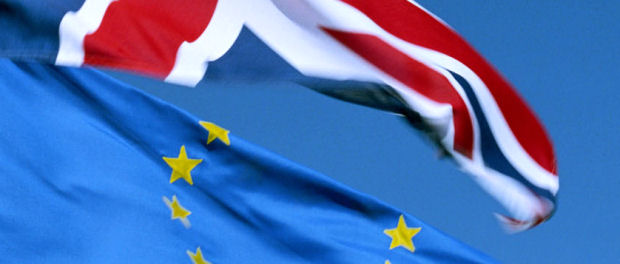UK and Europe – a specially complex relationship
As the threat looms of another rebellion by eurosceptic Conservatives, Channel 4 News looks back over the sometimes turbulent relations between the UK and the European Union since the war.

Britain’s post-war history has been defined on several occasions by its relationship with Europe. And over the past 65 years the Conservative and Labour parties have waxed hot and cold over the European question.
As early as 1946, Winston Churchill – who before the war had favoured an isolationist UK approach to Europe – called for the establishment of a “United States of Europe”.
But the UK watched from the sidelines in the 1950s as the European project gained momentum. The establishment in 1951 of the European Coal and Steel Community was followed six years later by the Treaty of Rome. Britain declined to join the six founding countries – Belgium, France, Italy, Luxembourg, the Netherlands and West Germany – in the European Economic Community.
The success of the “Common Market” prompted Harold Macmillan, the Conservative prime minister, to apply for membership in 1961 (his announcement led to warnings of a “national disaster” by Tory backbenchers). France’s President De Gaulle vetoed that application in 1963 and a subsequent application by Harold Wilson in 1967.
Read Gary Gibbon's blog on the countdown to the Westminster vote
National referendum
Another Conservative premier, Edward Heath, finally led the country into the EEC in 1973. Less than two years later, Harold Wilson’s Labour government began a renegotiation of the terms of British membership, followed by a national referendum on whether the UK should stay in the European Community. More than 67 per cent of those who took part voted in favour of continued membership.
At the time, Labour left-wingers, including Tony Benn and Michael Foot, were the most forceful advocates of a eurosceptic position. By 1983 Labour’s election manifesto – dubbed “the longest suicide note in history” by MP Gerald Kaufman – included a pledge that the party, if elected, would take Britain out of the European community, and without a referendum.
Tory anti-European sentiment did not find a voice until the 1980s when the UK, led by Prime Minister Margaret Thatcher, negotiated a 1984 rebate on its EEC contribution.
‘European super-state’
Four years later, in her speech to the College of Europe in Bruges, Mrs Thatcher presented what has become a seminal text for UK eurosceptics. Rejecting the idea of an “identikit European personality” and a “European super-state”, she called for a Europe where countries relished their separate national identities and which looked outwards to preserve its links with the United States.
It was Margaret Thatcher’s refusal to offer a timetable for Britain to join the European single currency that prompted the resignation of Geoffrey Howe in November 1990 and led eventually to her downfall as Conservative Party leader.
Her successor, John Major, promised early on in his premiership to keep Britain “at the very heart of Europe”. But as prime minister he presided over an increasingly dysfunctional relationship between the UK and other EU members.
‘Socialist charter’
Mr Major negotiated opt-outs from the 1993 Maastricht treaty on a single currency and the social chapter, but his authority was undermined when eurosceptic rebels engineered a parliamentary defeat on the treaty’s ratification. An unguarded PM was at one point recorded referring to the rebels as “bastards”.
Margaret Thatcher had previously characterised the social chapter as a “socialist charter”, but Tony Blair signed up to it not long after Labour came to power in 1997. One commentator has described the move as “a useful step in the normalisation of the British position in Europe”, and it set the tone for less fractious dealings between the UK and the EU under Mr Blair and Gordon Brown. Indeed, UK-EU relations during the New Labour period were most tested in the field of foreign policy, where Britain regularly asserted the primacy of its allegiance to the United States.
The prospect this week of another political rebellion over Europe comes after a decade when the Conservatives have tried to bury their divisions on the issue. With the Tories tied to the pro-European Liberal Demcrats in coalition government, but with the European project teetering under the weight of the eurozone crisis, there is no guarantee Monday’s referendum vote will signal an end to wrangling over the EU.